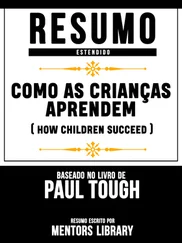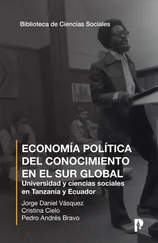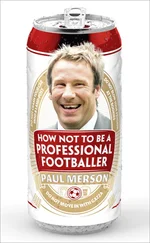Race to Nowhere has helped to coalesce a growing movement of psychologists and educators who believe that the systems and methods in place to raise and educate well-off kids in the United States are in fact devastating them. One of the central figures in the movie is Madeline Levine, a psychologist in Marin County who is the author of a bestselling book, The Price of Privilege: How Parental Pressure and Material Advantage Are Creating a Generation of Disconnected and Unhappy Kids. In her book, Levine cites a variety of studies and surveys to back up her contention that children of affluent parents now exhibit “unexpectedly high rates of emotional problems beginning in junior high school.” This is no accident of demographics, Levine says; it is a direct result of the child-rearing practices that prevail in well-off American homes. Wealthy parents today, she argues, are more likely than others to be emotionally distant from their children while at the same time insisting on high levels of achievement, a potentially toxic blend of influences that can create “intense feelings of shame and hopelessness” in affluent children.
Levine’s book draws on research done by Suniya Luthar, a psychology professor at Columbia University’s Teachers College, who for the past decade or so has made a specialty of researching the specific psychological challenges of children growing up in affluence. (She attended the Lawrenceville conference in 2007 at Randolph’s invitation.) When Luthar began her research, she was interested primarily in the problems of low-income adolescents. But in the late 1990s, she decided she needed to find a comparison group to help her better understand how the patterns she was seeing in disadvantaged urban neighborhoods compared to those of less troubled demographic groups. And so she undertook a study comparing more than two hundred mostly white, mostly wealthy suburban tenth-graders with a similar number of mostly African American, low-income urban tenth-grade students. To Luthar’s surprise, she found the affluent teenagers used alcohol, cigarettes, marijuana, and harder illegal drugs more than the low-income teens. Thirty-five percent of the suburban girls had tried all four substances, compared with just 15 percent of the inner-city girls. The wealthy girls in Luthar’s survey also suffered from elevated rates of depression; 22 percent of them reported clinically significant symptoms.
Luthar was soon asked to consult at another middle school in an even more affluent town, where she followed a cohort of middle-school students for several years. About a fifth of these high-income students, she found, had multiple persistent problems, including substance use, high levels of depression and anxiety, and chronic academic difficulties. This time, in addition to collecting information about psychological distress and delinquent behavior, Luthar polled students on their relationships with their parents. She found that parenting mattered at both socioeconomic extremes. For both rich and poor teenagers, certain family characteristics predicted children’s maladjustment, including low levels of maternal attachment, high levels of parental criticism, and minimal afterschool adult supervision. Among the affluent children, Luthar found, the main cause of distress was “excessive achievement pressures and isolation from parents —both physical and emotional.”
Dan Kindlon, an assistant professor of child psychology at Harvard, found further evidence of the specific pressures on well-off children in a nationwide survey of affluent families he conducted for a book he published in 2000. Like Luthar, Kindlon discovered disproportionately high levels of anxiety and depression among wealthy students, especially in adolescence, and he found that the emotional disconnection that existed between many affluent parents and their children often meant that the parents were unusually indulgent of their children’s bad behavior. In Kindlon’s survey, parents making more than one million dollars a year were, by a wide margin, the group most likely to say that they were less strict than their own parents.
K. C. Cohen told me that she and other teachers at Riverdale have talked a lot about affluence and its potentially detrimental effect on students’ character development; in fact, she brought Kindlon to Riverdale to speak to students and teachers on the subject. Both Cohen and Fierst told me that many parents at Riverdale, while pushing their children to excel, inadvertently shield them from exactly the kind of experience that can lead to character growth. As Fierst put it, “Our kids don’t put up with a lot of suffering. They don’t have a threshold for it. They’re protected against it quite a bit. And when they do get uncomfortable, we hear from their parents. We try to talk to parents about having to sort of make it okay for there to be challenge, because that’s where learning happens.”
Cohen explained that in the middle school, “If a kid is a C student, and their parents think that they’re all A’s, we do get a lot of pushback: ‘What are you talking about? This is a great paper!’ We have parents calling in and saying, for their kids, ‘Can’t you just give them two more days on this paper?’ Overindulging kids, with the intention of giving them everything and being loving, but at the expense of their character—that’s huge in our population. I think that’s one of the biggest problems we have at Riverdale.”
This is an issue for all parents, of course, not just affluent ones. It is a central paradox of contemporary parenting, in fact: we have an acute, almost biological impulse to provide for our children, to give them everything they want and need, to protect them from dangers and discomforts both large and small. And yet we know—on some level, at least—that what kids need more than anything is a little hardship: some challenge, some deprivation that they can overcome, even if just to prove to themselves that they can. As a parent, you struggle with these thorny questions every day, and if you make the right call even half the time, you’re lucky. But it’s one thing to acknowledge this dilemma in the privacy of your own home; it’s quite another to have it addressed in public, at a school where you send your kids at great expense.
This is the problem that Randolph is up against at Riverdale as he tries to propel this new kind of conversation about character forward. When you work at a public school, whether it’s a charter or a traditional public school, you’re paid by the state, responsible, on some level, to your fellow citizens for the job you do preparing your students to join the adult world. When you work at a private school like Riverdale, though, you are always conscious that you’re working for the parents who pay the tuition. Which makes a campaign like the one that Randolph is trying to launch all the more complicated. If your premise is that your students are lacking in deep traits like grit and gratitude and self-control, you’re implicitly criticizing the parenting they’ve received—which means you’re implicitly criticizing your employers.
Although they would almost certainly not express it this way, wealthy parents choose a school like Riverdale for their children, at least in part, as a risk-management strategy. If you look at the list of successful Riverdale alumni, you’ll see some impressive names on it—Carly Simon, Chevy Chase, Robert Krulwich, the governor of Pennsylvania, and the junior U.S. senator from Connecticut—but for a school that has been producing highly privileged graduates for 104 years, it boasts very few real world-changers. (Sorry, Chevy.) Traditionally, the purpose of a school like Riverdale is not to raise the ceiling on a child’s potential achievement in life but to raise the floor, to give him the kinds of connections and credentials that will make it very hard for him ever to fall out of the upper class. What Riverdale offers parents, above all else, is a high probability of nonfailure.
Читать дальше
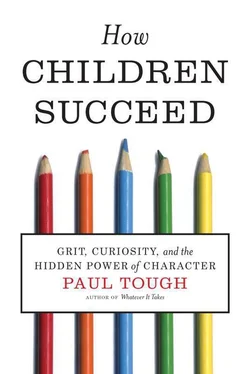

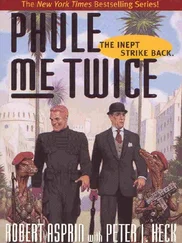
![Коринн МакКей - How to Succeed as a Freelance Translator [calibre 3.46.0]](/books/402693/korinn-makkej-how-to-succeed-as-a-freelance-transl-thumb.webp)


